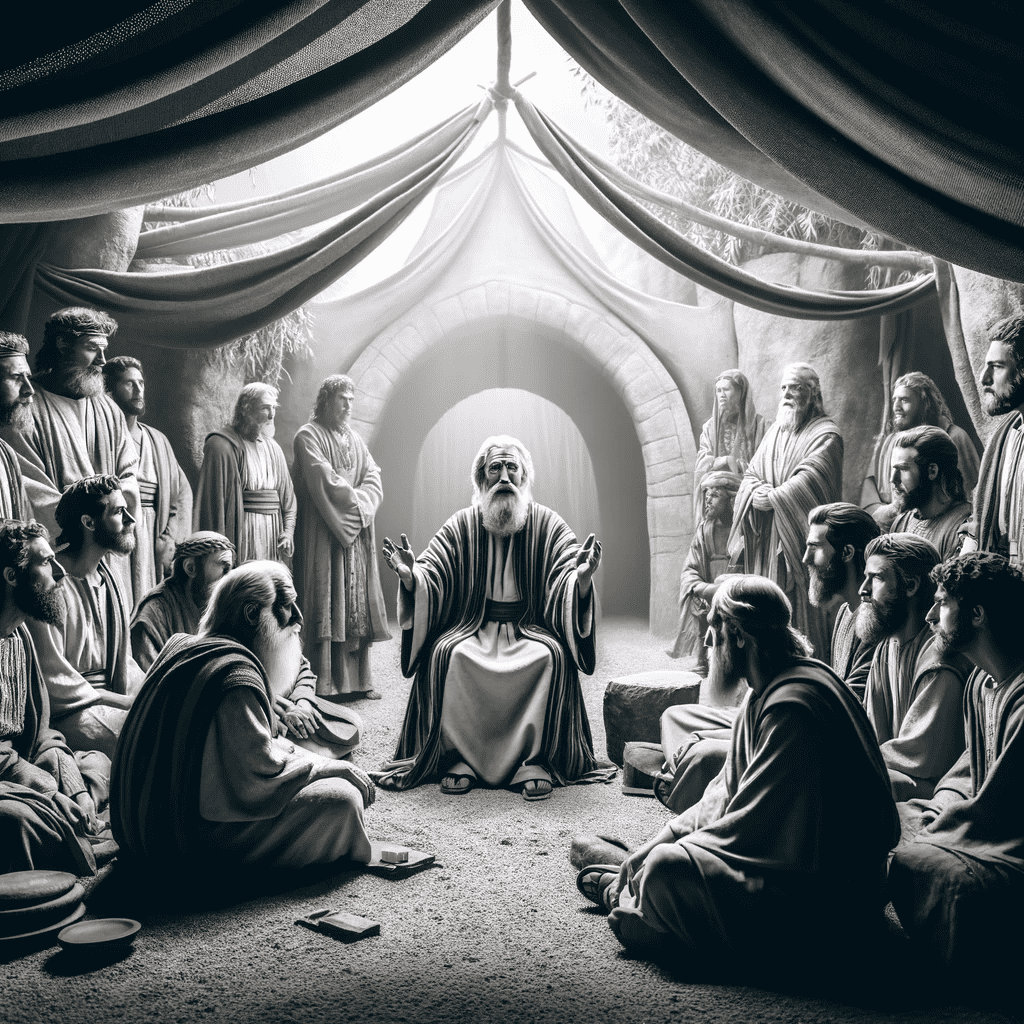
The story of Jacob’s blessing of his sons, found in Genesis 49:1-27, unfolds as a poignant and prophetic moment in the Bible, offering a glimpse into the future of the twelve tribes of Israel. As Jacob, also known as Israel, senses his time on earth drawing to a close, he gathers his sons around him to bestow upon them his final blessings and to reveal to them what will befall their descendants.
Jacob begins with Reuben, his firstborn, acknowledging his strength and preeminence. However, Jacob also addresses Reuben’s impulsive and unstable behavior, which has forfeited his right to the privileges of the firstborn. Simeon and Levi are next, and Jacob criticizes their anger and violence, prophesying that their descendants will be scattered within Israel.
Judah, on the other hand, receives a blessing of leadership and strength. Jacob foretells that Judah’s descendants will be rulers among their brothers, and from his line will come the sovereignty that shall not depart from Judah until Shiloh comes, referring to a future peace-bringer or ruler. This prophecy is often interpreted as a reference to the coming of the Messiah, a central figure in Jewish and Christian eschatology.
Zebulun is blessed with prosperity and a haven for ships, indicating a future connected to seafaring and trade. Issachar is likened to a strong donkey, symbolizing a future of hard labor but also of territorial richness. Dan is described as a judge for his people, as one of the tribes of Israel, suggesting a role in leadership and justice.
Gad, Asher, and Naphtali receive blessings that speak to their strength, prosperity, and eloquence, respectively. Gad is promised victory over his foes, Asher is foreseen to enjoy rich food and royal delicacies, and Naphtali is likened to a free-running deer, emblematic of eloquence.
Joseph is set apart with a particularly rich blessing. Jacob describes Joseph as a fruitful vine by a well, whose branches climb over a wall. Despite the arrows of archers, Joseph remains steadfast, attributed to the strength and support of God. Jacob blesses Joseph with the blessings of the heavens, the depths, and the breasts and womb, signifying a future filled with prosperity and fertility.
Finally, Benjamin is described as a ravenous wolf, indicating a fierce and warlike nature, with his descendants dividing spoils in the evening.
As the story of Jacob’s blessing of his sons concludes, the narrative transcends the immediate context to lay a foundational understanding for the future of the Israelites. Each blessing, nuanced with personal and tribal destinies, not only encapsulates the character of Jacob’s sons but also prefigures the geographical distribution, occupational tendencies, and relational dynamics among the tribes of Israel.
After blessing his sons, Jacob gives them further instructions about his final resting place, insisting that he be buried in the cave in the field of Machpelah near Mamre in Canaan. This place holds sentimental value as it is the burial site of Abraham, Sarah, Isaac, Rebekah, and Leah, linking Jacob’s final wishes with the legacy and land promises made to Abraham. This request underscores the importance of continuity, heritage, and the connection to the Promised Land that resonates through generations.
Jacob’s blessings and his burial instructions intertwine personal legacy with collective destiny, emphasizing the importance of memory, land, and God’s promises to the patriarchs. The narrative serves not only as a testament to Jacob’s life and his relationship with his sons but also as a bridge to the future of the Israelites, foreshadowing their experiences in and out of Canaan, their later divisions into tribes, and their interactions with surrounding nations.
In the broader biblical narrative, Genesis 49 stands as a pivotal moment where personal stories are elevated to communal and historical significance. Jacob’s prophetic words encapsulate themes of redemption, the consequences of moral and ethical choices, and the enduring presence of God’s promises throughout generations. The blessings, therefore, are not merely farewell words from a dying father but are imbued with divine insight that shapes the identity and destiny of the people of Israel.
The story of Jacob’s blessings resonates with readers by highlighting the power of words, the significance of legacy, and the intricate ways in which individual character and divine purpose intertwine to shape history. It invites reflection on how personal virtues and flaws can influence broader communal outcomes and how faith in divine promises guides the path of a people through history. Through the narrative of Genesis 49, the Bible teaches about the importance of blessings, the weight of leadership, and the profound impact of ancestral legacies on future generations.